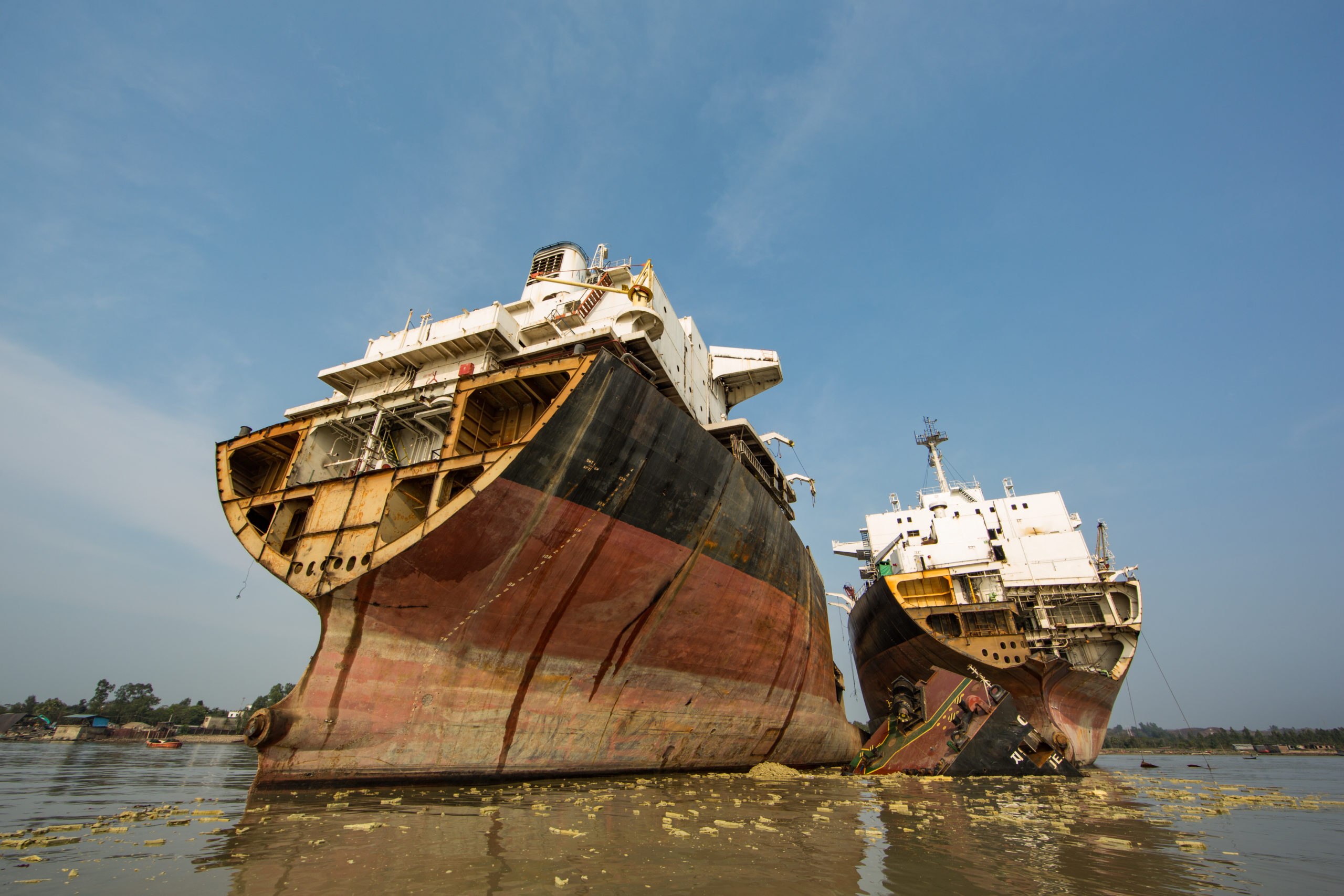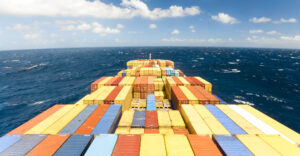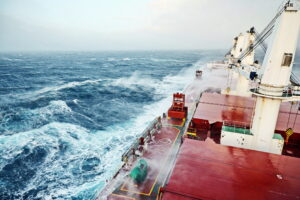From 26 June, ships at the end of their operational lives must be recycled in a safe and environmentally sustainable way. The Hong Kong International Convention for the Safe and Environmentally Sound Recycling of Ships entered into force on 26 June, establishing mandatory regulations to govern the way ships are recycled.
Since 2009, around 8221 ships were scrapped in South Asia, causing at least 473 deaths and 517 injuries. “The figures on accidents are likely to be much higher. Occupational diseases are not even registered in these statistics and are not officially monitored,” the NGO Shipbreaking Platform warns in its South Asia Quarterly publication.
Over the next decade, shipping association BIMCO has estimated that over 15.000 ships will need to be recycled. This is more than double than the previous decade.
BIMCO estimates the ship recycling potential over the next 10 years to be 16,000 ships, or 700m deadweight tonnes (DWT), from previously 15,000. The new estimate equals twice the number of ships, and nearly triple the DWT, recycled over the last 10 years and highlights the need for investments in compliant recycling facilities.
Pakistan’s federal minister for maritime affairs Junaid Anwar Chaudhry chaired recently a meeting on the upgrade of the Gadani Ship Breaking Yard.
The minister announced that the yard will be transformed into a Model Green Yard with modern infrastructure and enhanced facilities.
The project, worth 12 billion rupees, aims to transform the industry into a green yard and promote ship recycling under the Hong Kong Convention.
Federal minister further revealed that the project will also include the construction of a 30-bed hospital, a 32-kilometer road, schools, and a park.
The meeting was informed that residential facilities for doctors and nurses, labour colony and clean water, will be constructed as part of the modernization of the yard.
The upgradation project was first announced in September 2024 by the ministry of maritime affairs when the secretary general of the IMO Arsenio Dominguez visited the Gadani Ship Breaking Yard to launch the modernization project of the shipbreaking industry.
Several ship recycling nations have already been implementing the Convention’s technical standards on a voluntary basis.
Currently, there are 24 Parties to the Convention, including major flag states such as Japan, Liberia, the Marshall Islands and Panama, as well as four major ship recycling countries: Bangladesh, India, Pakistan and Türkiye. Altogether they cover 57.15% of the world’s shipping by tonnage.
The Hong Kong Convention, adopted at a diplomatic Conference held in Hong Kong, China, in May 2009, addresses key environmental, occupational health, and safety risks involved in the recycling of ships, while distributing responsibilities and obligations across relevant stakeholders – shipowners, ship building yards, ship recycling facilities, flag States, port States and recycling States.
“The entry into force of the Hong Kong Convention this year marks a watershed moment in our shared objective to promote sustainable and safe ship recycling practices globally. This achievement reflects years of dedicated work and will renew out drive to safeguard human health and the environment in this critical industry,” commented Arsenio Dominguez, secretary-general of the International Maritime Organization (IMO).
While the shipping industry and the IMO have framed this as a landmark for safer and greener ship recycling, the NGO Shipbreaking Platform warns that the Convention fails to address the environmental injustice and human rights violations that continue to stain the industry.
“The HKC does not set a roadmap for sustainable ship recycling, but will instead serve the interests of shipping companies that want to avoid paying the true cost of safe and environmentally sound end-of-life management. Tragically, it also risks to undercut efforts to level the playing field for responsible ship recyclers to compete,” highlighted Ingvild Jenssen, executive director and founder, NGO Shipbreaking Platform.
Federal Minister Junaid Anwar Chaudhry chaired a meeting on the upgrade of the Gadani Ship Breaking Yard.@PID_Gov @GovtofPakistan #MaritimeAffairs pic.twitter.com/sWtlJeWsKV
— Ministry of Maritime Affairs, Govt of Pakistan (@MaritimeGovPK) June 25, 2025
Federal Minister Junaid Anwar Chaudhry chaired a meeting on the upgrade of the Gadani Ship Breaking Yard.@PID_Gov @GovtofPakistan #MaritimeAffairs pic.twitter.com/waYWByHZ3p
— Ministry of Maritime Affairs, Govt of Pakistan (@MaritimeGovPK) June 25, 2025



